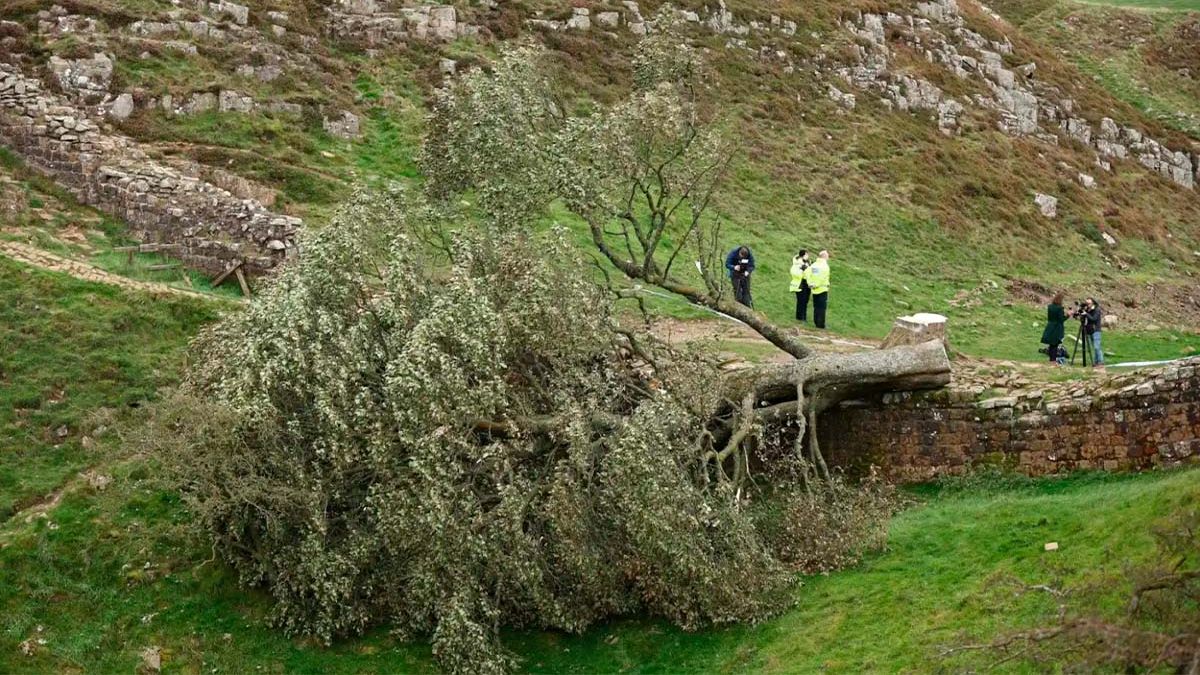Location at a glance
USA: Talks with Syria’s new rulers positive
Copy the current link
The USA wants to help Syria after the coup. The bounty on the leader of the Islamist group HTS is lifted. Meanwhile, Baerbock spoke in Ankara about the explosive situation in the Kurdish areas.
US diplomats met with representatives of the Islamist group Haiat Tahrir al-Sham (HTS) for the first time since the coup in Syria and lifted the million-dollar bounty on their leader. Positive discussions had been held in Damascus, said Barbara Leaf, top diplomat responsible for the Middle East at the US State Department, afterwards. The leader of the HTS, Ahmed al-Sharaa, agreed that terrorist groups should not pose a threat either within Syria or abroad. The HTS took power in the country after the overthrow of head of state Bashar al-Assad at the beginning of December.
Syrians have the chance to create “a new, freer and inclusive society that takes its rightful place both in the region and on the world stage,” Leaf said. The US wanted to work with the Syrian people “to seize this historic opportunity.”
A few years ago, the United States offered a $10 million bounty on al-Shaara, who until recently went by his nom de guerre Mohammed al-Julani. Based on their conversation, she told him that the US would now “not pursue” the bounty on his head, Leaf said after the meeting. Al-Shaaras HTS is classified as a terrorist organization by the United States and the European Union.
Another attack on Israel
Meanwhile, Israel was again the target of a rocket attack from Yemen during the night. A projectile fell in the port metropolis of Tel Aviv and several people were slightly injured, the Israeli army announced during the night. They would receive medical care. Attempts to intercept had previously been unsuccessful, it said. The warning sirens blared in the center of the country.
The Israeli Air Force said it had bombed ports and the capital Sanaa this week in response to rocket and drone attacks by the Houthi rebels in Yemen. A Houthi rocket attack was repelled on Thursday night. According to its own statements, the militia wants to support Hamas in the Gaza Strip against Israel. Like Hamas and the Lebanese Hezbollah militia, the militia is allied with Israel’s arch-enemy Iran.
Activists: Heavy fighting near Kobane in northern Syria
According to activists, heavy fighting between pro-Turkish forces and Kurdish militias continues in northern Syria. The Syrian Observatory for Human Rights reported that there were violent clashes particularly around the city of Kobane, not far from the border with Turkey. Fighters from the Turkish-backed Syrian National Army (SNA) and allies were trying to take control of Kobani, it said.
Turkish drones were also used in the fight with the Kurdish-led Syrian Democratic Forces (SDF). The SDF confirmed the fighting. According to the Observatory, there were also Turkish drone attacks in the area around Raqqa. There are said to have been victims.
Foreign Minister Annalena Baerbock warned Turkey against an escalation of the conflict over the Kurdish areas. “The security of Kurds in particular is essential for a free and secure future for Syria,” said the Green politician after talks with her Turkish colleague Hakan Fidan and intelligence chief Ibrahim Kalin in Ankara. She added: “It was good to hear that the Turkish Foreign Minister also sees it that way.”
Turkey is accused of wanting to use the situation in Syria to destroy the areas in the north that are under the administration of Kurdish militias. The Kurds and the SDF are supported by the United States. While the SDF is an important partner for the USA in the fight against the Islamic State (IS) in Syria, Turkey sees the militia as an offshoot of the banned Kurdish Workers’ Party PKK – and therefore a terrorist organization.
Baerbock: Turks are right to warn of the threat of terrorism
Your Turkish interlocutors had rightly warned about the dangers of terrorism, which endangers their country’s security interests, said Baerbock. “This is a legitimate concern.” There are intensive discussions with Turkey, but also with the USA and internationally about how the security of Turkey and Syria’s other neighbors can be guaranteed without violating Syria’s territorial integrity. This includes disarming the militias and integrating them into a future national security structure.
At the same time, Baerbock warned of a rise in Islamism in Syria. She was referring to statements by HTS spokesman Obaida Arnaut. He said in a TV interview that women were unsuitable for the office of defense minister or for roles in the judiciary due to their “biological nature”. “A radical Islamist order” will only lead to new fragmentation, new oppression and thus to new struggles, said Baerbock. The future rulers must make it clear that they integrate all ethnic, religious groups and women into the political process. There should be no chance that Islamists will gain strength.
US diplomats: Welcome positive message from new rulers
HTS leader al-Sharaa recently appeared moderate and promised a Syria for everyone. After meeting with him in Damascus, US diplomat Leaf said: “We fully support a Syrian-led and Syrian-owned political process that leads to an inclusive and representative government that respects the rights of all Syrians, including women and the diverse Syria’s ethnic and religious communities. People welcome “the positive messages” from their conversation partners. Actions “and not just words” must now follow, it was said.
According to Leaf, it was the first visit by US diplomats to Syria since 2012, when the US broke off diplomatic relations with Syria following the start of the civil war the previous year. In addition to Leaf, the US special envoy for hostage situations, Roger Carstens, and the US special envoy for Syria, Daniel Rubinstein, also took part in the talks with representatives of the Islamist group HTS. Washington has had previous contact with the HTS, but is struggling to deal with the Islamist group.
The US diplomats’ visit also focused on missing US citizens such as the journalist Austin Tice. He was kidnapped in Syria in 2012. Carstens said they had received a lot of information about Tice in Damascus, but none had yet confirmed his fate one way or another.
dpa
Source: Stern
I have been working in the news industry for over 6 years, first as a reporter and now as an editor. I have covered politics extensively, and my work has appeared in major newspapers and online news outlets around the world. In addition to my writing, I also contribute regularly to 24 Hours World.




